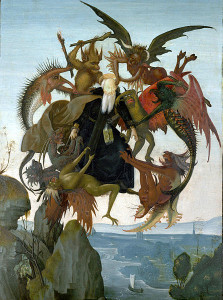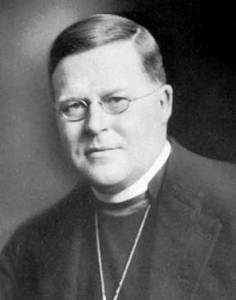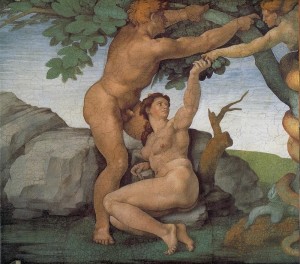Archive for the 'NEWS' Category
Grief is hating God not for taking him away but for making you write the obituary.
Grief is being so hungry but the thought of eating makes you feel sick.
Grief is knowing someone is sobbing in the other room but you can’t bear to get up to comfort them.
Grief is a keening train whistle at 3am.
Grief is the mountains carving a hole in your ribcage and resting there.
Grief is pouring your Gen-macha into a “University of Victoria Dad” mug.
Grief is a guitar that no-one remembers bringing upstairs to the living room.
Grief is a mostly finished bag of potato chips rolled up and pinched shut with clothespins.
Grief is white sympathy orchids being, for a moment, the worst thing you’ve ever seen.
Grief is stories that you haven’t heard before that make you wonder if you ever really knew him at all.
Grief is a pot of hydrangeas left on the doorstep.
Grief is wondering how the sun could possibly be shining.
Grief is wondering why the whole world doesn’t stop.
Grief is a stuffed turtle in the spare bedroom that you can’t let go.
Grief is a jar of Tikka Masala that he will never use again.
Grief is losing all pretense of composure over a pair of reading glasses.
Grief is screaming, “I want my daddy!” like a toddler simply because it is true.
Grief is rage that other older and sicker people didn’t die first.
Grief is not wanting to see the body so you can remember him just as he was the last time you saw him.
Grief is thinking, “Will this make me stronger? Better? More compassionate?” and your heart laughing bitterly like it will break.
Grief is unbearable gratitude that he recorded those new songs he told you he wrote.
Grief is not wanting to be alone and yet unable to bear one more hug because it’s not his.
Grief is the persistence of snow on the mountain.
Grief is the seeds in the garden that he planted but can’t harvest.
Grief is a stone that melts and re-solidifies, over and over.
-Clarity
In a crisis the English always make a cup of tea, so that was what my husband did.
I never got to drink it, though, because Mum came and got me, and that meant that we had to make a pot at her house. So we did, and I drank too much and got jittery, and we looked at photos after crying in each others’ arms.
On the morning after your father dies, you’ll eat leftover pizza and cry and think, “We were supposed to go fishing. Ah, fuck.” You’ll console your grieving stepmother and say, “We’ll get through this together,” and wonder if now she’ll finally understand that you’re not a child and then feel bad for the thought. You’ll head to Community Worship at school hoping to God no-one says, “Don’t cry; he’s with Jesus now,” because if someone does you can’t be held responsible for the consequences. You also hope to God no-one says, “Think of what this will do for your ministry. What doesn’t kill you makes you stronger,” because you’ll croak, “I’d rather be a shitty priest with a dad.”
Pink and white and yellow tulips will come from your beloved friend overseas, and they’re beautiful but you’ll let your husband thank the florist because you’re not sure what to say.
Your denominational mentor — a jewel of a priest who agrees when you say dispassionately, “Everyone dies, big deal,” and says, “Yes,” when you say “If anyone tells me to rejoice because he’s in heaven I’m going to tell them to fuck right off,” and means it — will drive you to a liquor store so you can buy a bottle of wine for tonight ’cause why the hell not? Friends will give hugs and no-one will say all the things you are steeling yourself to hear because of course they won’t; there likely won’t be any words at all, except maybe “There are no words,” and that’s how you want it because most of the ones on offer are just shit: already consumed, partially digested, no nutritional value, and totally unrecognizable now, all original truth and light gone, and they stink anyway so who cares. You’ll thank God that no-one tries to play pastoral care superhero and try to convince you that God is in this dark time, because, hell, you know that, know it like the shade of his eyes or the feel of his hugs, tighter and longer as he got older, or the sound of his chuckle, the one that made things all better but could also be totally infuriating, or the deep silence that said, “I love you, daughter, but that kind of bone deep truth has no words: truth is these blue mountains and they sing a better song than the one in my heart. We are Morgans and our feelings are carried inside us like small grey stones at the bottom of a river. Best to let them lie, or you’ll slip and they’ll sink you.” (And you never could and that was okay: his river ran still and deep enough for the both of you.)
What happens now?
What happens now as you take notes on what to discuss about arrangements and the service and should we even have a service or just a wake and how to pass the time between now and then? What happens when you make plans to head up north to his little Brackendale house and his garden full of beans and peas and carrots, knowing full well that the sight of that house and his guitars and the stupid dollar-store clock you bought him and the Celtic dragon you drew and framed for him is going to cleave to your jaws like in Psalm 22, but it’s really those mountains that will get you, the blue mountains that will really blast a ragged hole in your heart and let his blood and her blood — your blood — pour like a river down your body and mark you, mark you for a mortal, brushed by death on the busy highways of the world, mark you for tears and platitudes and silence and flowers and cards and other peoples’ stories of death and other peoples’ anxieties and superstitions and guilt.
What do you do when night comes and you wake up from a dream of childhood, wake up with breasts and a husband and twenty years’ worth of schooling but no goddamn idea how it happened that you could wake up a grown-up when your dream of second hand plastic ponies bought at the Value Village and singing “Summertime” by the campfire and casting your line on a misty lake and “Daddy, do the Inspector Gadget voice” is still so real?
What do you do when you lie awake that night next to your husband and all the terror comes home to roost and builds twisted nests in your hair as you think, “Please God, don’t let me wake up with bloodless grey morning light coming through the window next to a body that has cooled and a heart that has flickered out”?
What do you do when the two of you get in the shower and you look at water beading on his back and realize that one day he will die and you will put him in the ground and you don’t know when, you can’t know, and you will die too and leave your own ragged hole in some other heart, maybe a heart that hasn’t even been born yet, a hole perfectly shaped only for you: nonadaptable, doomed to only ever be full or empty, with nothing in between?
What do you do?
I pray, walk along an empty sidewalk on my way to Community Worship singing at the top of my lungs, without really knowing why: only knowing that I must or else the emptiness wins.
And I drink tea.
-Clarity
 So…my dad died.
So…my dad died.
It was completely unexpected and it’s going to take time to work through the shock of losing him. Right now, although I feel like I was hit by a truck, I am also incredibly grateful: for being at VST, one of my favourite places, when I got the news; for the love, prayers, and support from all of my family and friends; and for the fact that, a couple of years ago, I decided to start saying, “I love you” every time Dad and I said goodbye. He was not a demonstrative person in terms of emotion or affection and it took me a long time to learn and appreciate the love that often rested underneath silence as we drove to his place or looked at the mountains outside his house in Squamish or laid down a track in his basement. I will miss him so much.
If you’re a praying type, your prayers are very appreciated.
Thanks all of you for being my friends.
Here’s what I’m grateful for.
-Clarity
I had to learn to love the Patristics through EfM and my time at seminary, and I have come to appreciate how much of what they discussed has survived through unconscious assumptions that were passed on to me in some ineffable way. But the Desert Fathers speak a far deeper truth that engages a “lower†part of my body – not a lesser, but a lower part of me that my Hebrew mothers and fathers likely would have referred to as the “bowels†and that we Westerners would call the heart. (I like bowels better – it describes the inner movement I feel when moved spiritually).
St. Anthony of Egypt’s healing powers and reputation among the hagiographically inclined as a skin restorer intrigue me, especially when considering the New Testament, where skin afflictions are rampant, and among the most numerous of the diseases healed by Jesus.
I am intrigued by the connection I see between a Crossan/Borg stance about healing wonders bringing the ritually impure back into right relationship and a monastic sense of religious duty (although I do believe Jesus was doing more than that in his own work). When I consider the notion that the Church was becoming entangled with Empire, mired in conflict over doctrine and engaged in intellectual gymnastics, it’s very illuminating that Anthony would then be attracting a crowd of wanderers and bringing them back into some sort of right relationship.
Anthony calls us to a very different life – not strictly apatheia, though that was likely among the bottom layer of his colours. There was definitely a focus on right relationship while set apart from wider society, as opposed to detaching totally: “[The Lord] also gave Antony charm in speaking; and so he comforted many in sorrow, and others who were quarreling he made friends. He exhorted all to prefer nothing in the world to the love of Christ.â€

The Torment of St. Anthony (Michelangelo)
As an introvert I’m enchanted by all of this! I love nothing better than to be engaged in silence and contemplation. I sometimes wonder if perhaps there is such a thing as reincarnation, and if I was once a discalced Carmelite. I would be happy to go without if it meant I could spend more time in prayer. I worry, though, if this emanates from my own “sidecar†of demons. (This is how a beloved professor referred to the chorus of voices that keep us from being our best selves; the “voices in our heads,” as it were). Mine is a packed sidecar, but many of the demons within are different from how they look in other people. There are a few that lord it over others, and a few that seek their own glory, but far more of them have to do with self-hatred and indeed a momentary hatred of others who can be perceived as “betterâ€, “prettier†or “more memorable†than me. As an Ennegram 4 with a wound based in the fear of being forgotten, these latter are among the more frightening, although I find they are easier to keep in check with a quick reminder that God is within all people. The most difficult are the former – the ones who proclaim that it is no wonder there are others who are better, prettier, etc., because I am unlovable. Even though my conversion experience was based in the truth of my necessity and beauty in God’s world, the demons obviously remain as always, and I find that, as Anthony warned, in the process of deepening my relationship with God they have become louder as of late, particularly when I consider the road I am walking and my aspirations to ordained leadership within the Church.
I can see that their desperation – their weeping and lamenting as well as their cavorting, in Anthony’s terms – is based not only in the self-hatred many people (particularly women) carry with them, but also in a desire for laziness and disconnection. This also manifests itself in despair for the world and a hatred for Western capitalistic society – they are Calvinistic demons to the core! So far I take comfort in a very Hebrew practice: that of being able to name them. If they are named, I have power over them.
Like Jesus, I hope that in receiving the name “Legionâ€, I shall eventually be able to have more control over them (recognizing also that I am not Jesus and that therefore they are sitting in my sidecar). I’ve found that my first reactions toward them were rage, but it was unproductive, as they of course always remain. Disengagement seems a far better option.
-Clarity
My eyelashes flutter, and I cry, “My hero!†It should actually be a little disturbing that I should find such a great source of advice in William Temple, because it suggests that we have a long way to go before we actually start taking a wise man’s advice. I suppose there’s comfort in knowing that Nature sometimes provides us with geniuses who lay the groundwork for something that has a chance to blossom later. Science celebrates its early bloomers – let us do the same.

William Temple
I find so much in Temple’s thought that would help the world today. Particularly illuminating is his focus on co-operation rather than competition as key to “social fellowship†as a normative part of our natural communal state as humans. I have been involved in a few projects that have had me think about bullying in school, and how many people sanctimoniously (finally) say that bullying has no place in schools and must be eradicated. But there is so much of a focus on bullying in schools that rarely does anyone confront the issue of bullying in business, and in fact society’s encouragement and glorification of this attitude through a focus on competition, both in schools and in business. Temple would have recognized this tendency, I’m sure. Recognizing this and naming a healthier and more Christlike alternative was one of his steps toward incarnational theology, a theology which is crucial to my own life as a Christian.
Other marks of this lifestyle were freedom and choice. I am a liminal person in many aspects of my life, and one place where I definitely straddle a chasm is between Pelagianism and Augustianism. Fundamentally flawed but precious (and redeemable) because of it is how I would describe the human experience. What matters is that we have the freedom to remain both…and the freedom to decide to go beyond simply redeemable.
It is also important that my decision to be a Christian is not clouded by fear that I am going to hell if I do not live as a Christian. This is not good news! The world is sick of that message, and rightly so. A god that rules by fear is a tyrant not worthy of worship. Temple would probably agree when I said that I should have the freedom to worship God without fear – and more than that. I do have the freedom to know and worship God in thanks for the amazing gifts God has bestowed upon the whole creation (and not just on me). Obligation would be linked to service as well. We are trained as children toward one specific obligation among many: If someone today asked a group of adults, “What do we say?†I’d be willing to guarantee most would say, as if by rote, “Thank you.†Therefore we thank God for what s/he has done, and we live out our lives in service to others.
To me, this is intimately linked through incarnational theology. It is not enough for me to see everyone as fellow humans who deserve love as much as I do. Certainly people are those things, but it doesn’t inspire me – it’s not good enough to just recognize we’re all members of the same species. I need to recognize that holiness rests on all of creation, good and bad, like the rain falls on the good and bad alike. It’s a Matthew 25 kind of spirituality, and it’s very incarnational indeed.
If we should remember, then we also have to worship, and once again I come to find myself at the stone marked ‘anamnesis.’ It is not enough to put Jesus’s words on a powerpoint projector and go through why each one was important while everyone puts on their best thoughtful expression. I must walk the way Jesus walked. We move toward the altar, and back out into the world, then back toward the altar again. We go forward to receive bread, and then walk out into the world with bread and light within us. For Anglicans, a priest carries not only her own bread with her, but bread enough for all that are hungry, and for those who wish to step forward, the water of new life that will never run dry.
This is what I want to do with my life.
I return to the question I asked myself in my first journal entry: “Have you been changed by love?â€
Yes.
And now, every prof at VST’s favourite question follows: “So what?â€
So I walk forward, receive, and walk out. I pray for a day when I might receive a gift too wonderful for me: the gift to carry the bread out with me to help God feed all who are hungry.
-Clarity
Celebrated “Caroline Divine†Jeremy Taylor’s call to hallow life’s every moment seems incredibly timely. We live in a world where there is a remarkable desire for spiritual growth and fulfillment in churches, and for coherent spirituality and ritual outside the churches. Secular society does sometimes fill the void with a variety of rituals – Remembrance Day, sports traditions and chants, Thanksgiving, and even clubbing on the weekend have their own ritualized necessities. Most of these rituals, though, are very limited – performed only once a year or a few times in a particular season. Even those everyday rituals like weekend clubbing, which can be a huge part of someone’s life (my own experience at my favourite Goth club, a place I went to faithfully every Sunday for two years) can either lose its appeal or not engage deeply enough with a person’s psyche. And, of course, none of these rituals are required to deal with the infinite if they do not wish do, save perhaps Remembrance Day, which can all too easily descend into vacuous patriotism.

Jeremy Taylor
Taylor called those who followed his instruction to hallow their lives not simply through “in-church†worship but through continuous recognition of God’s working in one’s life, as well as the modification of behaviour to remain within a state of piety and propriety, all the better to pray. He was a praxis-theologian, a phrase very much in vogue in today’s church. In my own parish, a census undertaken by our leadership showed that the development of spiritual practice was a huge concern for the congregation, particularly for newer and younger members. I don’t think that’s an anomaly. Young people reaching out to a faith tradition for meaning want to know how to be the church every day, not just Sundays. Long gone are the days when church was attended simply for appearance’s sake. In Cascadia, simply going to church itself can be a counter-cultural statement! The person who gives up Sunday to walk into a church (especially an Anglican one, once the bastion of respectability and colonial authority) is not there simply to appear “okay†to everyone in their neighbourhood, but there to be transformed. They would definitely agree with Taylor that it is emptiness to proclaim a faith that is not embodied. This is a hopeful but not naïve faith. This is a holistic faith that proclaims, “Humanity hath the rule of right within. What is lacking is only that they attend to it. But what constitutes the Christian life? It is the exercise of a holy life where dogma be kept in the shade and faith be kept in the light.â€
Amen!
-Clarity
Celebrated Anglican theologian (and beloved friend) Richard Hooker picks up where we left off on the question of the authority of ultimately subjective Scripture. While Hooker affirmed its centrality, he also affirmed that it was best when it supported the life of the community. Perhaps we are called to bless, break, and share Scripture, just as we do with our bread.
The part of Hooker that most seduces me is his practical Aristotelianism. Normally I tend to hover between particularity and the mystical shadows of Platonism, but I appreciate Hooker’s reluctance to impose order on ideas before examining them in detail. We exist as Anglicans in an invitatory sort of universe where we draw closer to know all things. Many of us recognize that theology can change. This for me is essential to faith – all things will change, and those that do not in the particular world are often seen as malfunctioning in some way. I might cheekily go so far as to say that all things should change lest they appear dead.
This would definitely be applicable to our own precarious position in the skeptical postmodern world. Questions of relevancy dominate our parish council meetings, our vestries, and our sermons. While our relevancy as an institution is a question I cannot answer, I find a peculiarly Anglican thought arising: that for me the relevancy of our ritual is so much more important. I see in my mind’s eye a child, many years from now, ask me why we do the strange things we are doing with this bread and this wine, like a Jewish boy asks his father what they are to remember on the Passover. I fear that when I can no longer proclaim that meaning, I will know that religion has outlived its relevancy. But this fear seems to sit alongside my fear of the boogeyman. Human beings will always be engaged in myth and meaning-making. The population of people who can answer the child’s question is shrinking rapidly, but is this something that should frighten me? What will fill the void? Ultimately, for however long we remain, it will be those of us who lovingly learned the meaning in order to share it with the world.
Bless, break, share. We should engage, then, in building up the body not necessarily in numbers, but in love and learning. What this will do, I’m not really sure. I don’t subscribe to liberal progressive optimism; I don’t think anyone can afford to anymore. But I do think it might continue the mission of Christ, and that’s enough for me.
Hooker believed in two kinds of law: natural law and revelation. We have our revelation, and we constantly turn it over and over to peer into each facet, sometimes magnifying, sometimes distorting. But we also have natural law, which Augustine and Francis argued was simply another kind of revelation, one that was much older than God’s hallowing of human flesh by the incarnation. This was a hallowing that occurred when we were still but carbon, held within stars that had not yet been born. This was creation itself. These stars too were blessed, broken, and shared, like the incarnate God – and we were brought into life. The world was our gift, and we were the world’s gift. The ritual is our remembrance of this cosmic give-and-take.
Remember. Bless. Break. Share. It is the acknowledgement of the remembrance’s power that makes us live in communion, rather than simple community.
-Clarity
Wilderness I
Â
Brother Mountain
teach me to age destructively
Sister Tree
teach me to talk to Kootenay breezes
Father Sky
Teach me to follow clouds
Mother Field
Teach me to call down thunder
Wilderness II (Canyon)
Â
Dark water
Spilled snow
Wet rock-breast
Night below
I believe I have found a good friend in John Jewel. I admire his use of rhetoric immensely – absolutely no thought is offered without a citation from either Scripture or the Church Fathers. I love his wry assertion that so far he has had no satisfactory arguments with Catholics over English misuse of Scripture, which in his mind only confirms that the English are in the right and the Catholics know it. His theology appears “down to earth†and very approachable for many levels of intellect. He has a tone in his apologies that is more than simply apologetic – it is didactic. All of this is relayed by someone who appears to live a Christianity that owes much to Celtic philosophy – celebrating and accommodating to human needs (denouncing celibacy, celebrating worship in the vernacular with the desire that the people know what they are asking rather than praying like parrots). This seems to come through further in his support of the early and Eastern Church fathers that were laying down doctrines before Aquinas and “established†Catholicism. I delight in Jewel’s assertion that Christianity itself was once thought of as heresy! (I imagine a thoroughly English twitch of the lips resembling a smile here). He is perfectly certain in his own brand of faith.
I leave little italicized notes to myself to keep my thoughts organized when I read heavy stuff like this. I found: “We want to appeal to Scripture to bypass someone dictating rules, but we have to recognize Scripture’s non-subjectivity.†This appears to have been written in response to a question about Jewel’s basis for authority. Today, Anglicans might make pretty much the same arguments against papal authority, but rather than church fathers we might quote moral ethics, or Lord Acton’s celebrated thoughts on absolute power. What I can’t help but wonder is how we would distinguish ourselves from other denominations today if we were asked to provide an apologetic response. Even N.T. Wright would probably use more respectful language than Jewel, but what would he say? What would any of us say? Right now we’re being called to explain and justify ourselves not only as a religion but as a denomination (particularly in conversation with mainstream Protestantism, into which we fit uncomfortably in many cases). We can no longer make any assumptions about the world and Scripture. Quoting Scripture is one of the last resources of justification within the church world, but it doesn’t hack it outside and it is crumbling on the inside as well, because we in the Western world are fighting the Post Modern struggle. Meanwhile, African churches shake their heads and wonder what our problem is. Jewel’s simple apology and explanation of Anglicanism is something we can celebrate, but it does leave plenty of wiggle room for us, and for some people this is frustrating. Our evangelical brothers and sisters seek solace in the Word, while the more Anglo-Catholic among us fill mostly empty churches with our smoke.

John Jewel
I’m not entirely sure what Jewel offers us today. I continue to appreciate his recalling of our roots in Scripture and the fathers. My main source of comfort lies in his delightful quote: “True faith is lively, and cannot be idle.†Although it is taken out of context, I can’t help but find hope in the struggle when I hold up this thought. And of course, I take deep comfort in knowing that the struggle itself may not even matter: “The fundamental question for an Anglican is, “Have you been changed by love?â€â€™[1] Yes. We all have. Why then should we fear?
-Clarity
[1] Wendy Fletcher, “Anglican History†classroom notes, September 21st, 2011.
 One of my school assignments is to put together a Lenten worship schedule. I find this sort of thing tremendously fun, and it also gave me the chance to read ahead and think about the Scriptural stories we will hear throughout the season.
One of my school assignments is to put together a Lenten worship schedule. I find this sort of thing tremendously fun, and it also gave me the chance to read ahead and think about the Scriptural stories we will hear throughout the season.
The first Sunday’s reading is from Genesis: the story of the fall. There’s a heckuva lot of baggage in that story, so I’m going to focus on just one concept: nakedness.
“And the man and his wife were both naked, and were not ashamed.†(Genesis 2:25)
Like infants and young toddlers, Adam, and Eve wander naked through the Garden, unhampered by any sense of shame. Isn’t it something, to think that most of us have never been as free or unashamed as we were before we could speak? It is only after several years have passed that we are taught to cover up. Most of us, though, come to clothes less traumatically than Adam and Eve. I can’t help but wonder: were we meant to be naked for ever, or, like Ellen Clark-King has mused, were we meant to come to adulthood but more carefully, more appropriately, more lovingly, alongside God instead of blundering on ahead, as children tend to do? Is one of the symptoms of our new separateness this sense of shame? Is shame something God gave us, or does it come from our own isolation, our own difference, from the unashamed creatures around us?
Naked is also a way to describe vulnerability. We so often focus on the desire to “be like God†that we miss the bleakly amusing fact that Adam and Eve hide when they hear God walking in the Garden. For creatures that have become “like God†they don’t seem very confident! The unfortunate cultural subtext infantilizes Adam and Eve, supposing that they hide because they are “guilty,†like kids caught in the cookie jar or the dog in the garbage. This isn’t wholeheartedly supported by the text, though. The man explains to God (who enigmatically, exquisitely asks, “Where are you?â€):
“I heard the sound of you in the garden, and I was afraid, because I was naked; and I hid myself.†(Genesis 3:10)
Is it really too fanciful to suggest that alongside Adam’s guilt burned a new fear of appearing vulnerable in front of One who had once been fully trusted? Is the act of disobedience any more “sinful†or “shameful†than the fear of appearing vulnerable in front of one who should be welcomed, loved, and willingly obeyed rather than evaluated in terms of threat and fear?
When we look at Jesus in the desert, vulnerable to hunger and temptation, or on the Cross, vulnerable to the deepest fear and despair, and yet (in the ancient world’s economy of shame) shaming Satan through his display of such nakedness, we can affirm with Paul that he is a new Adam.
My question is this: As the Church is called again to walk the pilgrim path of Lent, how is she called to be naked, vulnerable, and unashamed?
How are we?
-Clarity





